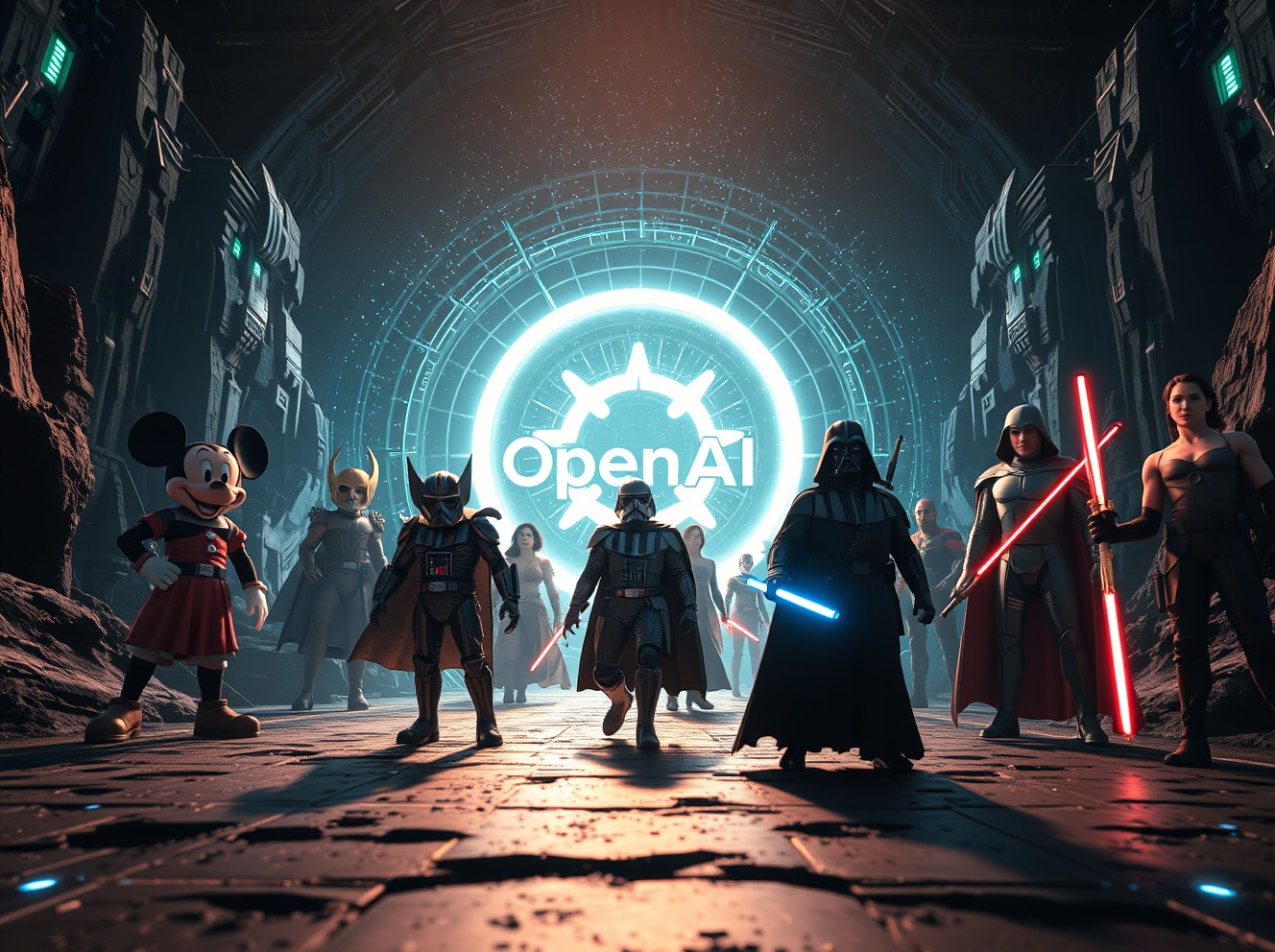OpenAI moves forward with office plans in South Korea’s booming AI market

Share:
OpenAI is set to open its first office in South Korea to match the growing demand for ChatGPT in the area. South Korea ranked second globally in paying subscribers.
Earlier this year, OpenAI announced its partnership with the Korean chat app, Kakao. The company also launched AI products with features tailored to the South Korean market. This week, OpenAI is back in South Korea, this time to set up its first office in the country.
OpenAI expands into Seoul
OpenAI is officially setting up its first office in South Korea as the demand for artificial intelligence services in Asia continues to grow.
The U.S.-based company behind ChatGPT confirmed on Monday that it has established a legal entity in South Korea and recognizes the country as a major hub for AI adoption and innovation. South Korea currently ranks second on the list of paying ChatGPT subscribers, with only the United States ahead.
“South Korea’s full-stack AI ecosystem makes it one of the most promising markets in the world for meaningful AI impact, from silicon to software, and students to seniors,” OpenAI’s Chief Strategy Officer, Jason Kwon, said in a statement.
Kwon is currently in Seoul for talks to fuel its international expansion.
Korea’s appetite for artificial intelligence tools is currently surging across industries from education and software development to entertainment and public services. OpenAI has already started hiring local talent to support new partnerships, product localization, and market operations.
More details about its South Korean strategy are expected to be announced in the coming months.
Political support for AI
In addition to its corporate expansion, OpenAI’s presence in South Korea has taken on slight political significance. The company recently held a meeting with the presidential campaign of Lee Jae Myung, the candidate for the Democratic Party of Korea, to discuss methods for cooperation in the AI sector.
The meeting, held at a hotel in Seoul, included OpenAI executives, and the discussion centered around their goals for AI development in South Korea.
Lee Jae Myung has chosen artificial intelligence as the pillar of his economic vision for the country. If elected, he has pledged to invest approximately 100 trillion won, approximately $73.46B, into the industry.
Lee aims to elevate South Korea into the ranks of the world’s top three AI powerhouses. His plan includes creating state-run investment funds specifically for AI companies and sharing returns with the public through tax benefits.
In a recent Facebook post, Lee said he would “open up an era of 100 trillion-won AI investment and make South Korea a global hub for digital and AI innovation.”
The growing political momentum behind AI, along with the already strong public adoption of AI, creates a favorable environment for OpenAI to expand.
The company already signaled its intent to strengthen its hold within Korea earlier this year when it announced plans to develop AI products tailored to the South Korean market in partnership with Kakao, the country’s leading chat app operator.
Kakao is known for its deep integration into Korean digital life and offers OpenAI a gateway into everyday use cases and large-scale data localization efforts.
Jason Kwon is expected to meet with officials from both the ruling People Power Party and the opposition Democratic Party during his stay in the country. These cross-party discussions suggest that South Korea’s AI push may receive bipartisan support, potentially making the country a long-term and politically stable partner in OpenAI’s international expansion ambitions.
KEY Difference Wire helps crypto brands break through and dominate headlines fast
OpenAI moves forward with office plans in South Korea’s booming AI market

Share:
OpenAI is set to open its first office in South Korea to match the growing demand for ChatGPT in the area. South Korea ranked second globally in paying subscribers.
Earlier this year, OpenAI announced its partnership with the Korean chat app, Kakao. The company also launched AI products with features tailored to the South Korean market. This week, OpenAI is back in South Korea, this time to set up its first office in the country.
OpenAI expands into Seoul
OpenAI is officially setting up its first office in South Korea as the demand for artificial intelligence services in Asia continues to grow.
The U.S.-based company behind ChatGPT confirmed on Monday that it has established a legal entity in South Korea and recognizes the country as a major hub for AI adoption and innovation. South Korea currently ranks second on the list of paying ChatGPT subscribers, with only the United States ahead.
“South Korea’s full-stack AI ecosystem makes it one of the most promising markets in the world for meaningful AI impact, from silicon to software, and students to seniors,” OpenAI’s Chief Strategy Officer, Jason Kwon, said in a statement.
Kwon is currently in Seoul for talks to fuel its international expansion.
Korea’s appetite for artificial intelligence tools is currently surging across industries from education and software development to entertainment and public services. OpenAI has already started hiring local talent to support new partnerships, product localization, and market operations.
More details about its South Korean strategy are expected to be announced in the coming months.
Political support for AI
In addition to its corporate expansion, OpenAI’s presence in South Korea has taken on slight political significance. The company recently held a meeting with the presidential campaign of Lee Jae Myung, the candidate for the Democratic Party of Korea, to discuss methods for cooperation in the AI sector.
The meeting, held at a hotel in Seoul, included OpenAI executives, and the discussion centered around their goals for AI development in South Korea.
Lee Jae Myung has chosen artificial intelligence as the pillar of his economic vision for the country. If elected, he has pledged to invest approximately 100 trillion won, approximately $73.46B, into the industry.
Lee aims to elevate South Korea into the ranks of the world’s top three AI powerhouses. His plan includes creating state-run investment funds specifically for AI companies and sharing returns with the public through tax benefits.
In a recent Facebook post, Lee said he would “open up an era of 100 trillion-won AI investment and make South Korea a global hub for digital and AI innovation.”
The growing political momentum behind AI, along with the already strong public adoption of AI, creates a favorable environment for OpenAI to expand.
The company already signaled its intent to strengthen its hold within Korea earlier this year when it announced plans to develop AI products tailored to the South Korean market in partnership with Kakao, the country’s leading chat app operator.
Kakao is known for its deep integration into Korean digital life and offers OpenAI a gateway into everyday use cases and large-scale data localization efforts.
Jason Kwon is expected to meet with officials from both the ruling People Power Party and the opposition Democratic Party during his stay in the country. These cross-party discussions suggest that South Korea’s AI push may receive bipartisan support, potentially making the country a long-term and politically stable partner in OpenAI’s international expansion ambitions.
KEY Difference Wire helps crypto brands break through and dominate headlines fast










